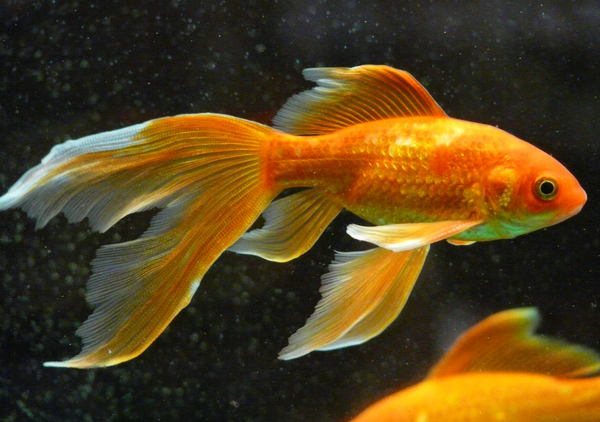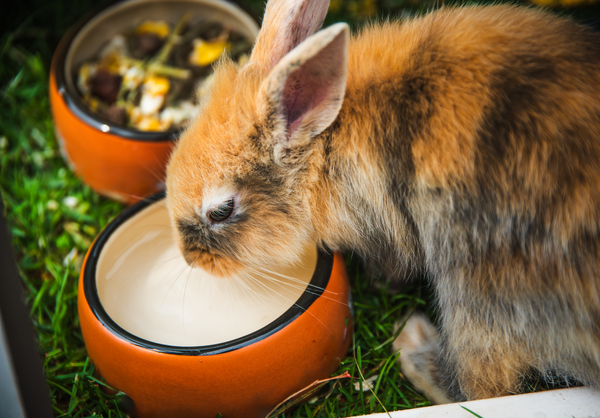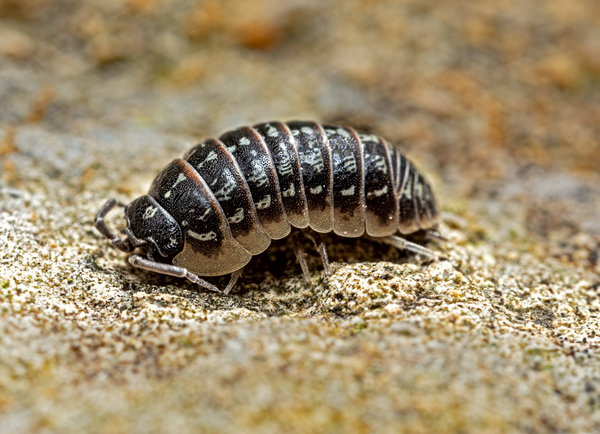Every child goes through a phase of wanted a small animal of some sort! Naturally, the animals that you usually hear sprouting up are hamsters, bunny and guinea pigs. These animals are common and can be found at any run-of-the-mill pet store. Here at Pisces, we offer all those same animals, and some pretty neat exotic small animals you may not know so much about!
Chinchilla
 A chinchilla is a large and robust rodent native to Chile. Because they have the densest fur out of any land mammal on Earth, they have an unmistakably soft coat, like your petting a fluffy cloud! Despite their soft coat, chinchillas should only be handled when necessary. A single chinchilla can live comfortably in a 36" x 20" x 36" wire cage enclosure. A chinchilla should never be bathed in water, as this causes problems like fur rot and skin fungus. Instead, provide a dust bath for your chinchilla daily, in which they can roll to absorb oils in their coats. Pisces Recommends: Living World Bath Sand. An adult chinchilla should be fed 1-2 tablespoons of chinchilla pellets daily, with a side of all-you-can-eat timothy hay. Always include an appropriate sized exercise wheel, and plenty of wood toys and platforms to chew and climb! When taken care of properly, a happy healthy chinchilla can live 10-15 years.
A chinchilla is a large and robust rodent native to Chile. Because they have the densest fur out of any land mammal on Earth, they have an unmistakably soft coat, like your petting a fluffy cloud! Despite their soft coat, chinchillas should only be handled when necessary. A single chinchilla can live comfortably in a 36" x 20" x 36" wire cage enclosure. A chinchilla should never be bathed in water, as this causes problems like fur rot and skin fungus. Instead, provide a dust bath for your chinchilla daily, in which they can roll to absorb oils in their coats. Pisces Recommends: Living World Bath Sand. An adult chinchilla should be fed 1-2 tablespoons of chinchilla pellets daily, with a side of all-you-can-eat timothy hay. Always include an appropriate sized exercise wheel, and plenty of wood toys and platforms to chew and climb! When taken care of properly, a happy healthy chinchilla can live 10-15 years.
Hedgehog
 The most common type of domesticated hedgehog is the Four-toed hedgehog. They are a small, light-colored hedgehog native throughout central and eastern Africa. Obviously, they are most notable for their series of short quills that line their back. Depending on the specific type, they will typically range between 7-12 inches in length. An ideal hedgehog enclosure will be a smooth sided (glass or plastic) tank measuring 30" x 12" x 18" (or 20-40 gallon aquarium tank). Avoid ceder shavings, the vapors are harmful to a hedgehog's eyes and skin. It is also important to note that hedgehogs are very active little critters, and nocturnal! It would likely be in your best interest to keep their enclosure in a separate room than where you sleep. Hedgehogs are extremely sensitive to temperature change, maintain an ambient temperature of 23 C - 32 C with the use of an infrared lamp. The little scampers will eat their own body weight in food every day! Pisces recommends: 8-in-1 Ultrablend Select Hedgehog Diet.
The most common type of domesticated hedgehog is the Four-toed hedgehog. They are a small, light-colored hedgehog native throughout central and eastern Africa. Obviously, they are most notable for their series of short quills that line their back. Depending on the specific type, they will typically range between 7-12 inches in length. An ideal hedgehog enclosure will be a smooth sided (glass or plastic) tank measuring 30" x 12" x 18" (or 20-40 gallon aquarium tank). Avoid ceder shavings, the vapors are harmful to a hedgehog's eyes and skin. It is also important to note that hedgehogs are very active little critters, and nocturnal! It would likely be in your best interest to keep their enclosure in a separate room than where you sleep. Hedgehogs are extremely sensitive to temperature change, maintain an ambient temperature of 23 C - 32 C with the use of an infrared lamp. The little scampers will eat their own body weight in food every day! Pisces recommends: 8-in-1 Ultrablend Select Hedgehog Diet.
Sugar Glider
 A sugar glider is a small, arboreal nocturnal gliding possum. Sounds crazy right? They get their unique name from their natural diet of tree sap, and having webbed limbs, making them capable of "gliding" from branch to branch in the wild. Sugar gliders grow to be 12-15 cm long (double to include tail), and live ~10 years. A barred cage with spacing 0.5" or less is an excellent enclosure. Due to their social needs, it is unwise to keep only one sugar glider and is recommended to keep as a pair. Like the hedgehog, they are sensitive to temperature change and should be kept at an ambient temperature of 23 C - 26 C. UVB lighting must also be provided during the daytime to help your sugar glider produce Vitamin D3. Sugar gliders are fed a special compound mixture known as a "Modified Leadeaters Diet" at night, this consists of:
A sugar glider is a small, arboreal nocturnal gliding possum. Sounds crazy right? They get their unique name from their natural diet of tree sap, and having webbed limbs, making them capable of "gliding" from branch to branch in the wild. Sugar gliders grow to be 12-15 cm long (double to include tail), and live ~10 years. A barred cage with spacing 0.5" or less is an excellent enclosure. Due to their social needs, it is unwise to keep only one sugar glider and is recommended to keep as a pair. Like the hedgehog, they are sensitive to temperature change and should be kept at an ambient temperature of 23 C - 26 C. UVB lighting must also be provided during the daytime to help your sugar glider produce Vitamin D3. Sugar gliders are fed a special compound mixture known as a "Modified Leadeaters Diet" at night, this consists of:
- 150ml warm water
- 150ml honey
- 1 hard boiled egg/ with shell
- 1/2 Gerber dried cereal/oatmeal or mixed
- 1/2 cup wheat germ
- 1tsp calcium powder (not phosphorus) RepCal
- 1/2 tsp herpavite
- 25g high protein baby cereal or 1 jar baby food (chicken/turkey)
Common Degu
 A degu is a small, large eared rodent from Chile, belonging tot he same parvorder as the chinchilla. It is often pointed out that degu's look kangaroo-like in appearance, likely due to the large amount of time spent on their hind legs. Like the sugar glider, they are very social and prefer to be kept in pairs or groups. A degu's incisor teeth continuously grow throughout its life, make certain there are a constant supply of chew objects available. Like the chinchilla, it is a social necessity to provide a dust bath. They are very active and love to run, so include lots of hiding places to roam and an exercise wheel. Pisces Recommends: Kaytee Silent Spinner.
A degu is a small, large eared rodent from Chile, belonging tot he same parvorder as the chinchilla. It is often pointed out that degu's look kangaroo-like in appearance, likely due to the large amount of time spent on their hind legs. Like the sugar glider, they are very social and prefer to be kept in pairs or groups. A degu's incisor teeth continuously grow throughout its life, make certain there are a constant supply of chew objects available. Like the chinchilla, it is a social necessity to provide a dust bath. They are very active and love to run, so include lots of hiding places to roam and an exercise wheel. Pisces Recommends: Kaytee Silent Spinner.




